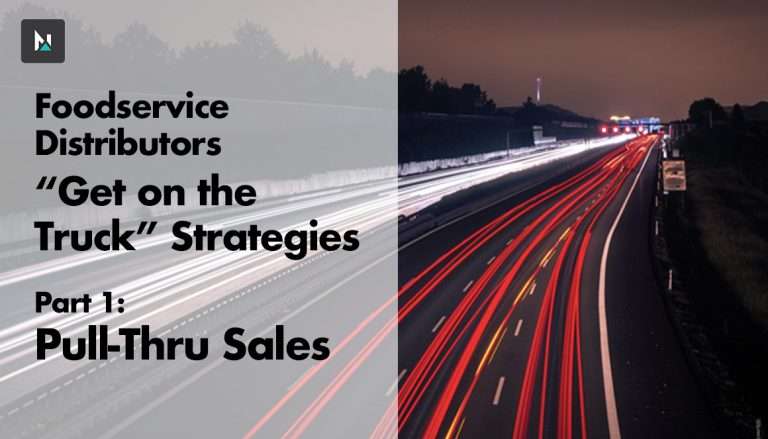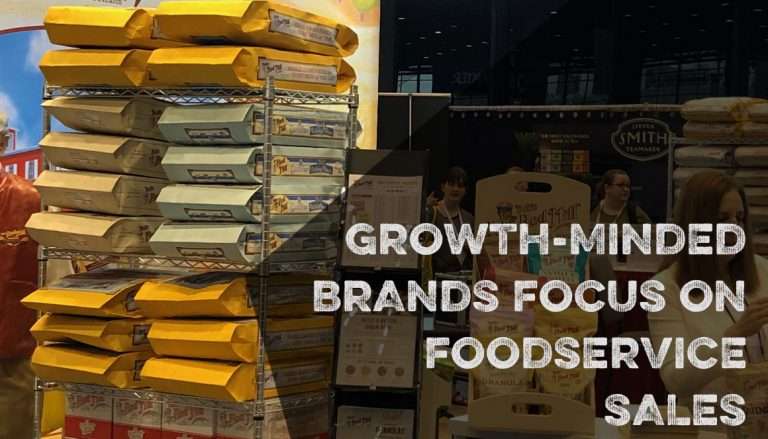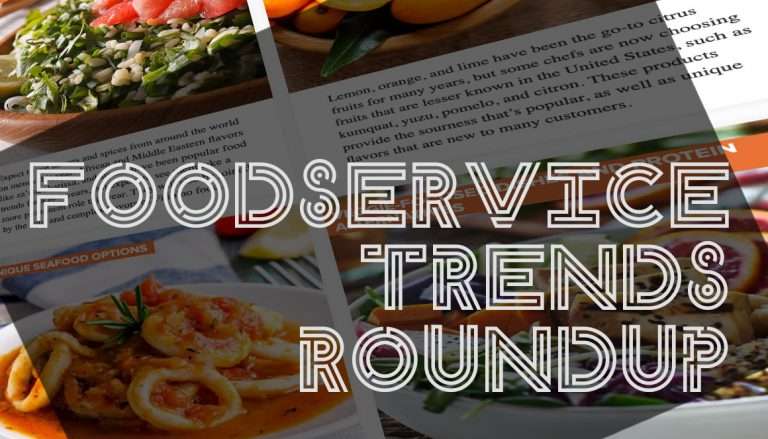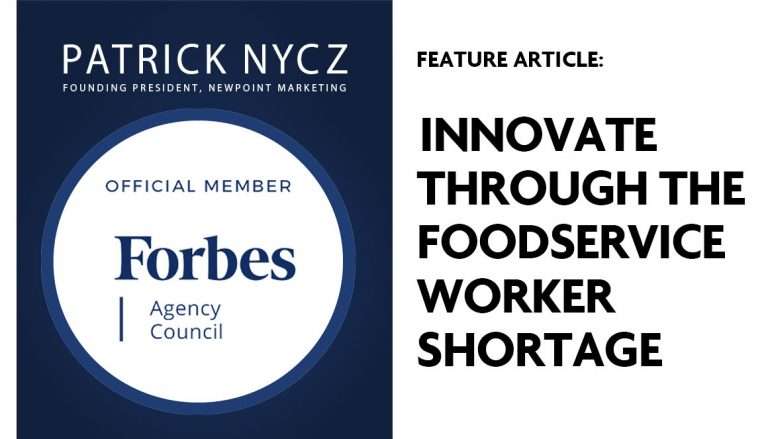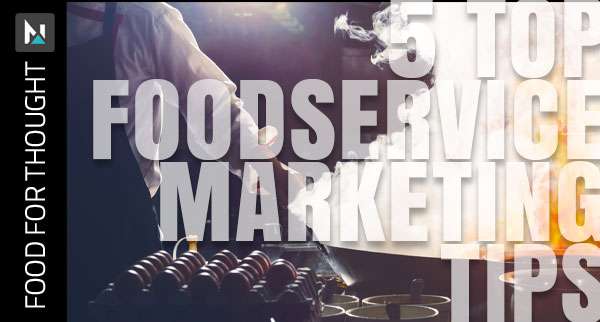Oct 4, 2023
Leading the Foodservice Ad Agency Evolution
The Evolution of the Foodservice Ad Agency
Decades before a foodservice ad agency existed, the foodservice industry, encompassing everything from local cafes to global restaurant chains, has seen significant changes in the ways businesses market and advertise to one another. Here’s a journey through the historical timeline of business-to-business (B2B) advertising and marketing in this ever-evolving industry.
Handshakes to AI

- The Early Days: Word of Mouth & Handshakes: In the early 20th century, the foodservice industry primarily relied on face-to-face interactions and word-of-mouth recommendations. Distributors often visit restaurants and cafes to strike deals or introduce new products. The value of a firm handshake and personal relationship was paramount.
- Print Era: Trade Magazines & Catalogs: By the 1950s and 1960s, trade magazines tailored to the foodservice sector provided a new avenue for businesses to advertise their products. These magazines became the primary source of industry news, trends, and advertisements. In addition, printed catalogs showcasing products became essential tools for manufacturers and distributors.
- Trade Shows & Exhibitions: The latter half of the 20th century saw the rise of trade shows and exhibitions. These events, like the venerable National Restaurant Association annual trade show, provided a platform for businesses to showcase their innovations, network with industry peers, and strike deals. They became vital for companies to establish their presence in the foodservice market.
- The Digital Revolution: Websites & Email Campaigns: The 1990s and early 2000s brought the internet revolution and a new era of B2B marketing in the foodservice industry. Companies began developing websites to showcase their product catalogs, share client testimonials, and offer resources like recipes or usage guides—email campaigns allowed for targeted and timely communication, changing the dynamic of sales pitches.
- Social Media & Influencer Collaborations: With the rise of platforms like LinkedIn, Twitter, and Instagram, B2B marketing in the foodservice sector has become more interactive. Companies could work with a foodservice ad agency to engage with their audiences in real-time, share behind-the-scenes looks, and collaborate with influencers to reach a broader audience.
- Data-Driven Marketing & Personalization: Today, with technological advancements, B2B marketing strategies in the foodservice industry have become increasingly data-driven. Businesses can create personalized marketing campaigns through tools that analyze customer behavior and preferences, ensuring more effective reach and engagement.
- Sustainability & Ethical Marketing: Modern consumers are well-informed and concerned about sustainability and ethical practices. This has permeated B2B marketing in the foodservice industry as well. Companies now emphasize their commitment to eco-friendly practices, fair trade, and ethical sourcing in their B2B advertising campaigns.
The foodservice industry’s B2B marketing landscape has seen numerous transformations over the decades. From personal handshakes to data-driven digital campaigns, the industry has adapted to the changing needs and technologies of the times. As the future unfolds, one can only anticipate more innovations and shifts in this dynamic industry.
Introducing the Foodservice Ad Agency: A Deep Dive with NewPoint Marketing
The foodservice industry is a vast and competitive landscape. How do businesses ensure their brands and products stand out with so many players in the field? Enter NewPoint Marketing, your dedicated foodservice ad agency. With extensive food and beverage industry expertise, we understand the nuances and challenges businesses face in B2B marketing. Let’s delve into how we can help you shine in this industry.
Why Creating a Brand is Paramount in the Foodservice Industry
- Trust & Credibility: A strong brand is more than just an aesthetic; it promises quality and reliability. When foodservice professionals recognize and resonate with your brand, their allegiance shifts from mere recognition to trust. This trust is the bedrock of lasting business relationships. NewPoint Marketing, with its vast experience in the food industry, understands the nuances and intricacies that go into building this level of trust. We recognize that having a trusted brand can make all the difference in the food industry, where the stakes are high. It’s about getting your product on the shelf and ensuring consumers and professionals pick it up repeatedly.
- Consistent Identity: In the age of digital transformation, where businesses are present across multiple platforms, a consistent brand identity is paramount. Whether a customer encounters your brand on a website, in a magazine ad, or at an international tradeshow, they should feel a seamless connection. A well-defined brand eradicates confusion and builds a strong, enduring mental image. With the multitude of interactions customers have daily, this consistent, recognizable identity, honed over time, can leave a lasting imprint and ensure they remember you amidst the noise.
- Value Proposition: While a product might have intrinsic value, the brand communicates this value effectively to the audience. It isn’t just about what you offer but how you articulate its significance in your consumers’ lives. A well-established brand serves as a beacon, signaling potential customers the benefits, ethos, and values you bring. It distills the essence of your business into an easily understandable narrative, helping consumers discern why your offerings might be superior or more suited to their needs than those of competitors.
- Emotional Connection: Brands are not merely transactional entities; they have the potential to be transformational. A well-conceived brand speaks to the heart as much as the mind. It transcends the tangible attributes of a product or service and taps into its audience’s aspirations, values, and emotions. When customers feel seen, understood, and valued, they bond emotionally with the brand. This bond can be more potent than any promotional campaign. It inspires loyalty, advocacy, and a sense of community among consumers. With the right strategy, your brand can become a cherished part of their lives, a symbol they identify with and champion.
- Differentiation: The food industry is teeming with options. In such a bustling marketplace, being ‘good’ isn’t enough; you must be distinctive. Your brand is that unique fingerprint, that distinct voice that rises above the din. It carves out a niche for your business, highlighting what sets you apart, be it your heritage, innovative approach, or commitment to sustainability. A well-designed brand doesn’t just make you different; it makes you irreplaceable in the minds of your audience. It’s an explicit declaration of your individuality in a sea of sameness.
B2B Advertising & Marketing Tactics in the Foodservice Industry
- Email Marketing: Email marketing offers a direct and personal touchpoint with your audience. It’s a powerful tool that allows businesses to curate tailored messages, making it especially effective for announcing new product launches, special promotions, or sharing important updates. Beyond just sending out emails, the analytics behind email marketing can provide invaluable insights into customer behavior, preferences, and engagement rates. Regularly engaging with your audience through well-crafted emails keeps your brand top-of-mind and fosters lasting relationships.
- LinkedIn: LinkedIn stands out as a premier platform for professionals, making it a goldmine for B2B marketing opportunities. Through sponsored posts, in-depth LinkedIn articles, and robust business pages, brands can effectively target and engage with professionals in their industry. Additionally, the platform’s powerful analytics tools can provide a deep understanding of audience engagement, allowing brands to refine their strategies for better results.
- Tradeshows: Tradeshows provide a unique arena for face-to-face interactions, enabling businesses to forge and solidify meaningful relationships. These events offer a prime opportunity to showcase products, understand industry trends, gather feedback, and interact with potential customers. The tangible experience of seeing and feeling products can create lasting impressions, elevating brand awareness and loyalty.
- Web-Based Banner Ads: While banner ads have been around for a while, their efficacy in digital marketing cannot be underestimated. Especially in the foodservice sector, these ads can be finely tuned and targeted to specific audience demographics. With advancements in ad technology, businesses can now optimize their banner ads for better reach, engagement, and conversions.
- Content Marketing: Content marketing transcends traditional advertising. By sharing valuable content—through informative blogs, insightful whitepapers, or engaging infographics—brands can establish themselves as thought leaders in their industry. This attracts potential clients and fosters trust and credibility, making them more likely to choose your brand over competitors.
- SEO & PPC: At NewPoint Marketing, our food service expertise is complemented by our adeptness at search strategies. Leveraging organic SEO and targeted PPC campaigns ensures your brand remains prominent in search results. This dual approach guarantees that when businesses seek solutions, your brand is right there, ready to assist.
- Testimonial & Influencer Partnerships: an old-school testimonial from a chef or a superstar in the food service industry has transformed into today’s digital age; influencers influence perceptions and drive brand engagement. By forging strategic partnerships with industry influencers, brands can tap into their vast audiences, gaining credibility and expanding reach. These collaborations can lead to authentic endorsements, compelling content, and increased brand visibility.
- Webinars and Workshops: In an increasingly digital world, webinars and workshops provide a virtual platform for brands to showcase their expertise. Businesses can effectively engage, educate, and nurture potential customers by offering valuable insights, in-depth training, or introducing groundbreaking products. These sessions, often interactive, foster engagement and position your brand as a proactive industry leader.
Let’s Make Your Brand Shine!
There’s no denying the importance of robust B2B advertising and marketing strategies in the foodservice industry. As a premier foodservice ad agency, NewPoint Marketing has a track record of crafting successful campaigns that resonate with the target audience. Our experience ranges from email marketing and LinkedIn strategies to tradeshows and banner ads.
Are you ready to elevate your brand in the foodservice industry? Contact NewPoint Marketing for a free foodservice marketing consultation or if you’d like to hear about our successful case studies in food service marketing and advertising. We’re more than just a foodservice ad agency; we’re your partners in growth!

